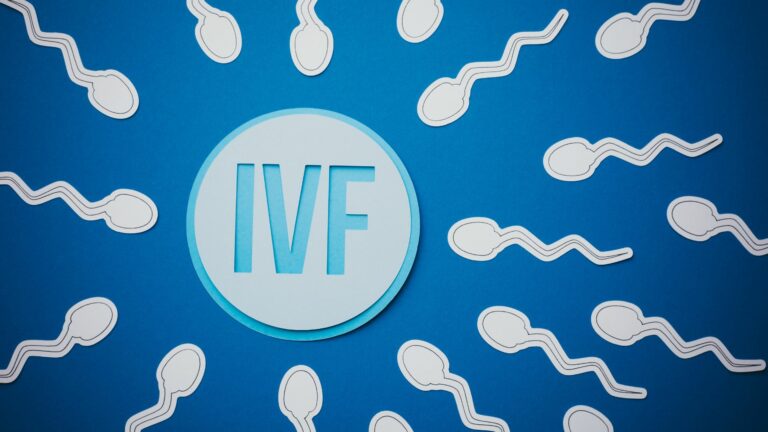
Trying to conceive and facing challenges can be a difficult and isolating experience.
If you’ve been diagnosed with tubal factor infertility, you might be wondering if In Vitro Fertilization (IVF) is the right path for you.
This article aims to provide clear and helpful information about tubal factor infertility, why IVF might be the best option in your case, and specific considerations for undergoing IVF in India. 🇮🇳
Key Takeaways 🔑
| Topic | Takeaway |
|---|---|
| Tubal Factor Infertility | Blockages or damage to fallopian tubes can prevent natural pregnancy 🚫 |
| IVF Success Rates | IVF offers 40-50% success rates for women under 35 in India 📈 |
| Pre-IVF Surgery | Laparoscopic salpingectomy may be recommended to increase success 🏥 |
| IVF Costs in India | A single IVF cycle can cost anywhere from ₹1 to ₹3 lakhs 💸 |
| Emotional Well-being | Prioritizing mental health during IVF is crucial 🧘♀️ |
Understanding Tubal Factor Infertility: What’s Blocking Your Path to Pregnancy?
Tubal factor infertility is a type of infertility caused by blockages or damage to the fallopian tubes.
These tubes are the pathways that connect your ovaries, where eggs are produced, to your uterus, where implantation and pregnancy occur.
When blockages are present, sperm cannot reach the egg for fertilization, preventing natural pregnancy.
There are several causes of tubal factor infertility, including:
- Pelvic inflammatory disease (PID): This is an infection of the reproductive organs, often caused by sexually transmitted infections (STIs).
- Endometriosis: Tissue similar to the uterine lining grows outside the uterus, which can sometimes affect the fallopian tubes.
- Past surgeries: Abdominal surgeries like appendectomy or C-sections can leave scar tissue that blocks the tubes.
- Ectopic pregnancy: A pregnancy that occurs outside the uterus, like in a fallopian tube, can damage the tube.
Diagnosing tubal factor infertility typically involves a test called a hysterosalpingogram (HSG). This X-ray procedure uses a contrast dye to visualize the fallopian tubes and identify any blockages.
Why IVF May Be Your Best Bet: Bypassing Blocked Tubes for Baby Bliss
If you’ve been diagnosed with tubal factor infertility, tubal repair surgery might seem like a logical next step. However, IVF offers several advantages in many cases:
- 📈 Success Rates: While tubal repair success rates vary depending on the severity of blockage, they generally range from 20-40%.
In Vitro Fertilization (IVF), on the other hand, boasts success rates of 40-50% for women under 35 in India according to the Indian Society for Assisted Reproduction (ISAR) (The Indian Society for Assisted Reproduction). - 🚫 Extent of Damage: If both fallopian tubes are completely blocked or severely damaged, surgery becomes less likely to be successful. IVF bypasses the fallopian tubes entirely, making it a viable option even in these cases.
- 🏥 Reduced Risk of Ectopic Pregnancy: Following tubal repair surgery, there’s a slightly increased risk of an ectopic pregnancy, where the embryo implants outside the uterus. IVF eliminates this risk entirely, as fertilization occurs in a controlled laboratory environment.
It’s important to remember that these are general statistics, and your individual success rates may vary.
Consulting with a qualified fertility specialist is crucial to determine the best course of treatment for your specific situation.
You can explore more about why and when to do IVF and IVF success rates to make an informed decision.
IVF Tailored to Your Situation: Specific Considerations with Tubal Factor Infertility
While the general IVF process is similar for most patients, a diagnosis of tubal factor infertility might prompt your fertility specialist to recommend adjustments to your treatment plan. Here’s what you need to know:
- 💊 Medication Protocols: Ovarian stimulation medications help mature multiple eggs for retrieval.
Your doctor might personalize your medication plan based on your tubal factor diagnosis, taking into account your ovarian reserve (number of remaining eggs) and any prior surgical history.
Learn more about the IVF process and procedure and IVF medications in India. - 🏥 Pre-IVF Surgery: In certain cases of tubal blockage or hydrosalpinx (fluid-filled fallopian tube), your doctor may recommend a procedure called laparoscopic salpingectomy, or the removal of the fallopian tube, before beginning IVF.
This is done to increase your chances of a successful pregnancy, as damaged tubes can sometimes interfere with embryo implantation, even in IVF. - 🥚 Egg Retrieval and Fertilization: The egg retrieval process in IVF remains mostly standardized, regardless of underlying infertility causes.
Your doctor will use ultrasound guidance to collect mature eggs from your ovaries. The sperm and eggs are then combined for fertilization in the lab. Find out more about the egg/oocyte retrieval process. - 👶 Embryo Transfer and Monitoring: After the embryos develop for a few days in the lab, one or more healthy embryos will be transferred to your uterus using a thin catheter.
You’ll then undergo monitoring to see if implantation and pregnancy occur. Read more about what to expect during IVF.
Important Note: In India, if you are using donor sperm or eggs for your IVF treatment, there are additional legal and ethical guidelines to consider.
The Indian Council of Medical Research (ICMR) has a set of regulations in place, and it is crucial to choose a clinic that adheres to these guidelines (Indian Council of Medical Research). Learn more about using donor sperm or donor eggs in IVF.
The Financial and Emotional Journey of IVF in India: What to Expect
IVF can be a substantial investment, both financially and emotionally. Let’s break down what you can expect:
Costs 💸
IVF treatment costs in India can vary depending on the clinic, location, medications, and specific procedures required.
On average, a single IVF cycle might cost anywhere from ₹1 to ₹3 lakhs. It’s advisable to contact several clinics for detailed cost estimates before beginning treatment. Check out our guide on IVF costs in India and financing options to help you plan your budget.
Insurance Coverage 📜
Unfortunately, insurance coverage for infertility treatments in India is limited. Some, but not all, private insurance companies offer partial coverage for IVF.
It’s crucial to review your insurance policy carefully ahead of time. Learn more about employer fertility benefits in India and your legal rights regarding IVF coverage.
Emotional Well-being 🧘♀️
Facing infertility is emotionally draining. The added steps of IVF can increase anxiety, and it’s essential to prioritize your mental health during this journey.
Consider individual therapy, support groups, or mind-body practices like yoga or meditation. Explore the psychological effects of IVF, coping with IVF failure, and finding support groups in India.
| Aspect | Considerations |
|---|---|
| Costs | ₹1 to ₹3 lakhs per cycle, varies by clinic and location |
| Insurance | Limited coverage, review policy carefully |
| Emotional Well-being | Prioritize mental health, seek support |
Resources 📚
- Resolve, the National Infertility Association: Provides emotional support and information.
- Indian Society for Assisted Reproduction (ISAR): Offers resources and information specifically about IVF and infertility in India.
Conclusion: A Path Filled with Hope
A diagnosis of tubal factor infertility might initially feel overwhelming, but know that you have options.
In Vitro Fertilization (IVF) offers a realistic and promising path to parenthood for many individuals facing this challenge.
While the process takes patience and emotional resilience, remember that you are not alone.
The journey to parenthood can be long or winding, but with the right support and the powerful tools of assisted reproductive technology like IVF, achieving your dream of a family is within reach.
Call to Action
If you suspect tubal factor infertility or have been looking for solutions, the time to act is now.
Consulting with a reputed fertility clinic in India is the first step towards getting answers and building a comprehensive treatment plan. Find out how to choose the best IVF clinic and doctor for your needs.
Disclaimer: This article is intended to be informative and should not be taken as medical advice. Always consult with a qualified fertility specialist before making decisions about your treatment plan.






